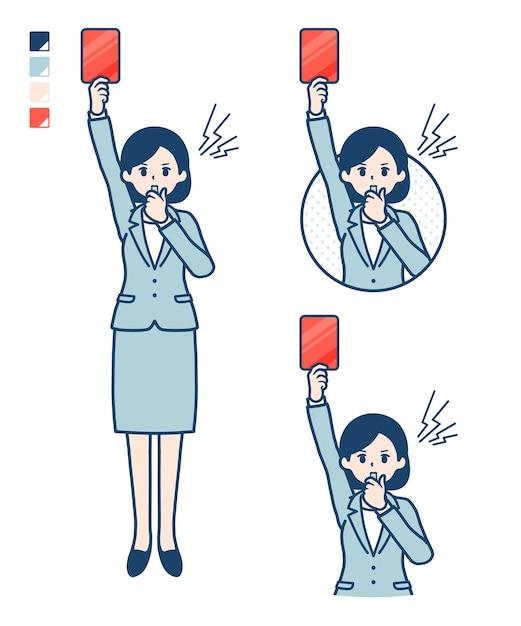In the unfortunate event of a wrongful death, the question of who bears the financial responsibility often arises. When loved ones are lost due to the negligence or misconduct of others, seeking justice becomes crucial. But what happens in terms of financial compensation? Who pays for the loss? In this blog post, we will explore the intricacies of wrongful death suits and shed light on the parties involved in the process. We’ll also delve into common causes of wrongful death, the timeline of a lawsuit, the possibility of winning a case, and the allocation of settlement monies. So, let’s get started!
Who is Responsible for Paying Damages in a Wrongful Death Suit
Losing a loved one is never easy, and when their death is the result of someone else’s negligence or wrongdoing, it can feel even more overwhelming. In such cases, families may choose to pursue a wrongful death lawsuit to seek justice and financial compensation for their loss. However, one common question that arises in these situations is, “Who is responsible for paying damages in a wrongful death suit?” Let’s delve into this issue to gain a better understanding.
Liability: A Complex Puzzle
Determining who bears the responsibility for paying damages in a wrongful death suit is like piecing together a complex puzzle. Various factors come into play, and the answer depends on the specific circumstances surrounding the case. Let’s break it down step by step.
1. The At-Fault Party
First and foremost, the party directly responsible for causing the death is typically the one who should bear the financial liability. Whether it’s a negligent driver in a car accident or a reckless product manufacturer, the person or entity at fault for the death is often accountable for paying damages. However, it’s essential to identify and prove this liability through legal proceedings.
2. Employer Responsibility
Sometimes, the at-fault party may have been acting within the scope of their employment when the wrongful death occurred. In such cases, the employer may also bear some responsibility for the damages. This is known as “vicarious liability.” For instance, if an employee causes a fatal accident while on the job, their employer might be held liable for the consequences.
3. Negligent Supervision
In certain scenarios, negligence on the part of an employer can contribute to wrongful death. If an employer fails to adequately train or supervise their employees, and this negligence directly leads to a fatal incident, the employer may be held responsible for the damages. However, proving negligence can be challenging and often requires expert testimony and solid evidence.
4. Multiple Defendants
In some wrongful death cases, there may be multiple parties responsible for the harm caused. This could include individuals, corporations, or even government entities. When liability is shared among multiple defendants, each party may be required to pay a portion of the damages. The specific percentages are typically determined by the court based on the evidence and circumstances of the case.
The question of who pays in a wrongful death suit is multifaceted, with several factors at play. While the at-fault party is usually the primary source of financial responsibility, employers or other negligent parties may also share in the liability. In complex cases, multiple defendants might be deemed accountable. If you find yourself navigating a wrongful death lawsuit, it’s crucial to consult with a qualified attorney who can guide you through the legal process and help you seek the compensation you deserve. Remember, pursuing a wrongful death claim is not just about the money; it’s about fighting for justice and holding those responsible accountable for their actions.
Wrongful Death Insurance Payout
What Happens After a Wrongful Death Lawsuit
Losing a loved one is never easy, and the emotional toll can be overwhelming. Unfortunately, in addition to the grief, there are also practical matters to consider, such as the financial aspects of the situation. One question that often arises is who pays for the damages in a wrongful death lawsuit? In this subsection, we will explore the topic of wrongful death insurance payouts and shed some light on how the financial compensation is typically handled.
The Role of Insurance Companies
When it comes to wrongful death cases, insurance companies often play a significant role in determining the outcome. In many instances, the responsible party has insurance coverage that may go towards compensating the victim’s family. This could be in the form of an auto insurance policy, a homeowners insurance policy, or other types of liability insurance. If the responsible party is insured, their insurance company will typically handle the claim and any resulting payout.
Understanding Wrongful Death Insurance Coverage
In some cases, insurance policies may specifically include coverage for wrongful death claims. This means that if a death occurs due to the insured’s negligence or misconduct, the insurance company will step in to provide financial compensation to the victim’s family. However, it’s important to note that not all insurance policies cover wrongful death. It’s crucial to carefully review the terms and conditions of the policy to determine the extent of coverage.
Factors Affecting Insurance Payouts
The amount of the insurance payout in a wrongful death case will depend on various factors, including the details of the incident, the policy limits, and the specific damages incurred. Insurance companies will typically conduct their own investigation to determine liability and evaluate the financial impact on the victim’s family. Factors such as medical expenses, funeral costs, loss of income, and emotional distress may all be taken into account when calculating the payout.
Seeking Legal Advice
Navigating the complexities of wrongful death insurance payouts can be overwhelming, especially during a time of grief. It is highly recommended to seek the guidance of an experienced wrongful death attorney who can provide valuable insights and represent your interests throughout the process. An attorney can help negotiate with insurance companies to ensure a fair and just settlement, taking into consideration the full extent of the damages suffered by the victim’s family.
While dealing with the aftermath of a wrongful death is undoubtedly challenging, understanding the potential insurance payout can alleviate some financial burdens. Remember to consult with a knowledgeable attorney, review insurance policy terms, and gather all relevant information to ensure proper representation and maximum compensation. By doing so, you can focus on healing and remembering your loved one, knowing that the legal aspects are being handled with expertise and care.
Wrongful Death Lawsuit Timeline
Filing a Lawsuit
When a wrongful death occurs, the first step in seeking justice is filing a lawsuit. This is typically done by the surviving family members or the personal representative of the deceased’s estate. The lawsuit is usually filed against the party or parties believed to be responsible for the death.
Initial Investigation
Once the lawsuit is filed, there will be an initial investigation to collect evidence and gather information. This may involve obtaining police reports, medical records, and conducting interviews with witnesses. The goal is to build a strong case that supports the claim of wrongful death.
Pretrial Proceedings
Before the trial begins, there are several pretrial proceedings that take place. These can include discovery, where each side gathers evidence and information from the other, and depositions, where witnesses or experts are questioned under oath. There may also be motions filed by either party to resolve certain legal issues before the trial.
Settlement Negotiations
During the pretrial phase, there may be attempts to reach a settlement. This is when the parties involved try to come to a resolution without going to trial. Settlement negotiations can be complex and may involve discussions about financial compensation for the surviving family members.
Wrongful Death Trial
If a settlement cannot be reached, the case will proceed to trial. The trial can be lengthy and involve presenting evidence, cross-examining witnesses, and making arguments before a judge or jury. The goal is to convince the judge or jury that the death was indeed wrongful and that the defendant(s) should be held accountable.
Verdict and Appeal
After the trial, a verdict will be reached. If the verdict favors the plaintiff, the court will determine the amount of damages to be awarded. However, either party has the right to appeal the decision if they believe there were legal errors or misconduct during the trial. The appeals process can prolong the legal proceedings.
Payment of Damages
Once the legal process is complete, and if the plaintiff is successful, the next step is the payment of damages. The responsible party or their insurance company will typically be responsible for paying the awarded compensation. However, the actual distribution of the damages will depend on the specific circumstances and any agreements made during settlement negotiations or mandated by the court.
Closure and Healing
While the timeline for a wrongful death lawsuit can vary depending on the complexity of the case, it’s important to remember that the primary goal of pursuing legal action is to seek justice and find closure. Though no amount of financial compensation can erase the loss, it can help provide the surviving family members with the support they need to heal and move forward.
In conclusion, navigating a wrongful death lawsuit can be a challenging and emotional journey. Understanding the general timeline of the process can help the grieving family members and their legal team move forward with confidence, knowing what to expect at each stage.
Wrongful Death Settlement Calculator
How to Determine the Value of a Wrongful Death Settlement
Losing a loved one due to the negligence of another party is devastating, and pursuing a wrongful death lawsuit can be overwhelming. However, it is important to understand the potential value of a wrongful death settlement to ensure you receive the compensation you deserve. While there is no set formula for calculating the exact amount, various factors are taken into consideration. Here, we will explore some key elements that can help estimate the value of a wrongful death settlement.
Economic Damages
One of the main factors considered in a wrongful death settlement is the economic damages. This typically includes any financial losses resulting from the death of the victim. It may involve medical bills, funeral expenses, loss of income, future earnings, and any other financial contributions the deceased would have made to their family. In order to determine the economic damages, a wrongful death lawyer will carefully assess all available evidence, including financial records and expert opinions.
Non-Economic Damages
In addition to economic damages, non-economic damages are an essential consideration in a wrongful death settlement. These damages account for the emotional and psychological impact resulting from the loss. They can include pain and suffering, loss of companionship, loss of guidance and support, and the overall emotional distress experienced by the surviving family members. While assigning a monetary value to non-economic damages can be subjective, a skilled attorney will work with you to build a strong case and demonstrate the extent of your loss.
Contributory Negligence
In some cases, the defendant may try to argue that the deceased was partially at fault for their own death. This is known as contributory negligence. If such an argument is successful, it can impact the amount of the wrongful death settlement. Depending on the laws in your jurisdiction, the settlement might be reduced or even eliminated entirely if a percentage of fault is assigned to the deceased. Therefore, it is crucial to have an experienced legal team on your side, who can counteract any attempts to diminish the value of your claim.
Insurance Policies and Assets
Another factor to consider is the insurance coverage and assets of the defendant. If the responsible party is insured, their insurance policy may provide coverage to compensate for the damages. However, insurance policies have limits, and if the value of your claim exceeds those limits, you might need to seek further compensation from the individual’s personal assets. Understanding the insurance coverage and assets involved will help determine the realistic settlement value and ensure that you pursue all available sources of compensation.
Conclusion
While it is impossible to provide an exact figure or use a standardized wrongful death settlement calculator, understanding the factors that influence the value of a settlement can give you a general idea of what to expect. Remember, each case is unique, and having the guidance of a knowledgeable attorney is crucial to assess your specific situation. By thoroughly evaluating economic and non-economic damages, combating arguments of contributory negligence, and considering insurance policies and assets, you can navigate the complexities of a wrongful death lawsuit and strive for a fair settlement.
Chances of Winning a Wrongful Death Suit
Understanding the Odds
When it comes to wrongful death suits, it’s natural to wonder about the chances of winning such a case. While there is no definitive answer, several factors can influence the outcome. It’s important to note that every situation is unique, and only an experienced attorney can provide an accurate assessment of your specific case. However, let’s dive into some key considerations that can impact the chances of success in a wrongful death suit.
Evidence is Key
One crucial aspect is the availability and strength of evidence. In any legal battle, solid evidence can make or break a case. In a wrongful death lawsuit, it’s vital to gather all the relevant documents, witness statements, and expert opinions to build a strong argument. If there is a clear and convincing proof of negligence or intent, the chances of winning the case increase significantly.
State Laws and Regulations
Another important factor to consider is the state laws and regulations pertaining to wrongful death suits. These laws can vary significantly from one jurisdiction to another, and they establish the criteria for filing a claim and determining liability. Familiarizing yourself with the legal requirements specific to your state can give you a better understanding of your chances of winning.
Legal Representation
Having a skilled and experienced attorney by your side can dramatically improve your chances of success. A wrongful death suit involves navigating complex legal processes, and an attorney with expertise in this area can guide you through the proceedings. They can help you build a strong case, negotiate with insurance companies, and represent your interests in court, significantly increasing your chances of winning.
Other Considerations
Apart from the factors mentioned above, there are additional elements to keep in mind, such as financial resources and the reputation of the defendant. Adequate financial resources are crucial to cover legal fees and ensure a thorough investigation, while the reputation of the defendant may influence the likelihood of a favorable outcome. However, it’s important not to get discouraged if your opponent appears formidable; with the right legal representation and evidence, justice can prevail.
While it is impossible to assign a specific percentage to the chances of winning a wrongful death suit, taking certain factors into account can give you a better idea of what to expect. Remember, each case is unique, and the outcome depends on various variables. By diligently gathering evidence, understanding state laws, securing quality legal representation, and considering other relevant factors, you can increase your odds of achieving a favorable result.
What is the Biggest Wrongful Death Settlement
When it comes to wrongful death cases, some settlements are absolutely jaw-dropping. Here, we take a closer look at some of the biggest settlements in history that have left people questioning their own career choices. Prepare to be amazed!
The Massive McDonald’s Payday
In what can only be described as a case of unprecedented hot coffee spillage, the infamous McDonald’s case of Liebeck v. McDonald’s Restaurants yielded a staggering settlement. Stella Liebeck, the plaintiff, was awarded a mind-boggling $2.86 million. Yes, you read that right! All because of a cup of coffee that was a tad too hot.
If the Glove Fits…
When it comes to high-profile wrongful death lawsuits, the iconic O.J. Simpson case takes the cake. Though primarily known as a murder trial, the civil lawsuit that followed resulted in a jaw-dropping settlement. The Brown and Goldman families were awarded $33.5 million in compensatory damages. Talk about making the glove fit!
Tobacco Giants Feeling the Burn
The harmful effects of smoking are well-known, but it took a series of landmark lawsuits to finally hold Big Tobacco accountable. The Engle progeny cases, which spanned over a decade, yielded a whopping $145 billion settlement. This staggering sum aimed to compensate the thousands of individuals and families affected by the tobacco industry’s actions. It sure made them cough up!
The Tragic Skydiving Accident
Skydiving is an exhilarating activity, but one tragic incident left families devastated and the company responsible facing a significant settlement. In the case of Robles v. Skydive Monterey Bay, a settlement of $40 million was awarded to the families who lost their loved ones. It just goes to show that even the thrill of the skies can land you in a courtroom.
The Unforgettable 9/11 Attacks
The horrific events of September 11, 2001, led to numerous wrongful death lawsuits against entities connected to the tragedy. One notable case was the Cantor Fitzgerald settlement, in which the company received a staggering $135 million. While no sum of money can ever truly compensate for such a devastating loss, it at least held those responsible accountable.
In the world of wrongful death settlements, these cases stand out as some of the largest and most significant. While the numbers may seem astronomical, remember that behind each settlement is a devastating loss and a grieving family. The fight for justice is often a long and arduous one.
Who Gets the Money in a Wrongful Death Lawsuit
How Are Damages Awarded in a Wrongful Death Lawsuit
In a wrongful death lawsuit, damages are awarded to compensate for the loss and suffering caused by the untimely death of a loved one. The purpose of these damages is to provide financial support to the surviving family members who have been affected by the loss.
Determining the Beneficiaries
The beneficiaries in a wrongful death lawsuit are typically determined by the laws of the state where the lawsuit is being filed. In many cases, the deceased person’s spouse, children, or parents are considered primary beneficiaries and are entitled to receive a share of the damages awarded.
Spousal Entitlement
In most states, the surviving spouse is entitled to a significant portion, if not all, of the damages awarded in a wrongful death lawsuit. This is based on the belief that the spouse has suffered a significant loss in terms of emotional support, companionship, and financial stability due to the death of their partner.
Children’s Rights
Minor children of the deceased are often considered primary beneficiaries and may be entitled to a portion of the damages awarded. The idea is to ensure that they are provided with financial support that they would have received from the deceased parent if they were still alive.
Distribution Among Parents
In some cases, if the deceased person is not survived by a spouse or children, the damages may be distributed among their parents. This is done to acknowledge the emotional and financial impact that the loss of a child can have on parents.
Other Considerations
Depending on the circumstances and applicable state laws, other family members, such as siblings or grandparents, may be entitled to a share of the damages. The court will typically consider the extent of their financial dependence on the deceased and the level of emotional suffering they have experienced.
Final Words
While each wrongful death lawsuit is unique and the distribution of damages can vary, the primary goal is to ensure that the surviving family members are fairly compensated for their loss. The specific rules and regulations regarding who gets the money in a wrongful death lawsuit may vary from state to state, so it is crucial to consult with an experienced attorney for guidance on your particular situation.
What Are the Most Common Causes of Wrongful Death
Wrongful death cases arise when someone dies as a result of the negligence or intentional misconduct of another party. These cases can be complex and emotionally charged, as families seek justice and compensation for the loss of their loved ones. Understanding the most common causes of wrongful death can shed light on the dangers we face in our daily lives and help prevent such tragedies from happening in the future.
Medical Malpractice: When Doctors Go Awry
In the realm of wrongful death, medical malpractice is a frequent offender. While most healthcare providers are skilled and dedicated professionals, mistakes can happen. Surgical errors, misdiagnoses, prescription drug mix-ups, and anesthesia complications are just a few examples of medical malpractice that can lead to fatal outcomes. It’s a grim reminder to always seek second opinions and advocate for your loved ones during medical treatments.
Motor Vehicle Accidents: The Road to Tragedy
Motor vehicle accidents are another leading cause of wrongful deaths. Whether it’s reckless driving, drunk driving, or distracted driving, the consequences can be devastating. Seat belts, airbags, and other safety measures can protect to some extent, but it’s vital to stay vigilant and practice responsible driving habits at all times. Remember, the road isn’t just a means of transportation; it’s a shared space where lives intersect.
Workplace Accidents: When Safety Takes a Backseat
Workplace accidents can happen in even the most seemingly safe environments. Construction sites with their heavy machinery, factories with hazardous equipment, and even office spaces plagued by slips, trips, and falls can all become scenes of tragedy. Employers have a responsibility to provide a safe working environment, but it’s crucial for employees to be aware of potential dangers and report any unsafe conditions promptly.
Product Liability: Defective and Deadly
Products we use daily, from household appliances to medical devices, can pose unforeseen risks. Defective products can cause death due to manufacturing defects, inadequate warnings, or design flaws. While regulatory bodies work tirelessly to ensure consumer safety, it’s essential to stay informed about product recalls and exercise caution when using unfamiliar or poorly reviewed items. Remember, not all gizmos and gadgets are created equal!
Criminal Acts: When Evil Strikes
Sometimes, wrongful deaths occur due to criminal acts such as assault, homicide, or negligence resulting in fatalities. These cases are undoubtedly the most heartbreaking and hard to comprehend. While no amount of precaution can fully shield us from the unpredictability of others, it’s vital to remain vigilant and prioritize personal safety. Being aware of our surroundings, practicing self-defense techniques, and reporting suspicious activities can help protect ourselves and our loved ones.
In a world filled with uncertainties, it’s important to be aware of the potential causes of wrongful death. By understanding these common factors and taking proactive measures to mitigate risks, we can strive for a safer future where lives are not cut short by preventable tragedies.



